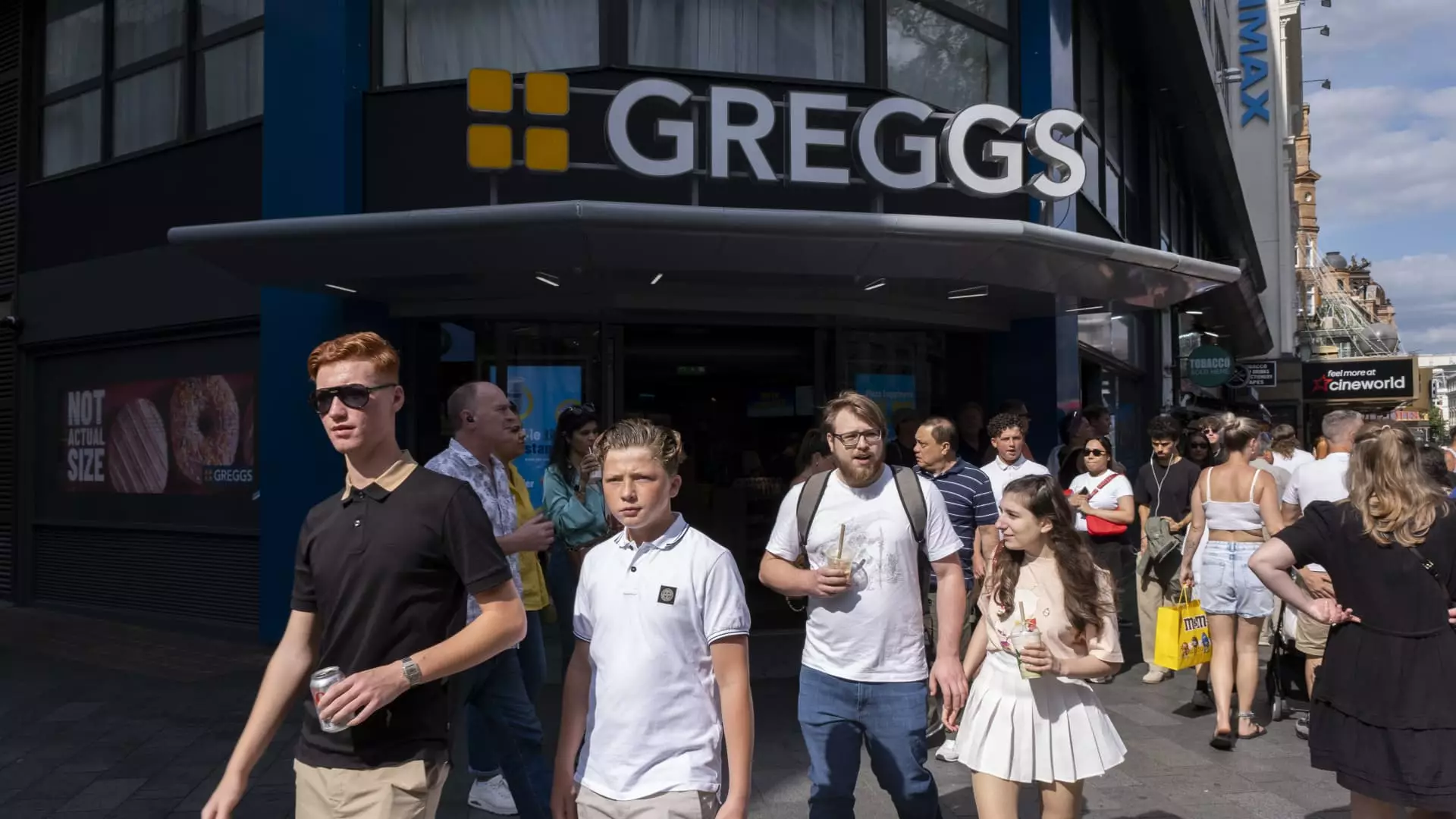For years, Greggs has cultivated its image as the quintessential British comfort food provider—delivering affordable, convenient baked goods to busy consumers. But recent financial setbacks reveal a stark reality: even the most beloved brands are vulnerable when confronted with unprecedented external forces. The company’s warning of declining sales during a record-breaking heatwave illustrates how fragile the veneer of consistency truly is. Despite overall growth, the sharp drop in share value exposes a disconnect between perception and reality, underscoring that economic resilience is often superficial and fragile, especially when external conditions defy expectations.
Climate Change and Consumer Behavior: An Unforgiving Combination
The intense heatwave that swept across the UK in June serves not merely as a meteorological anomaly but as a stark symbol of climate change’s disruptive impact on everyday life. Consumers, faced with soaring temperatures, naturally shift their preferences—favoring cold beverages over warm snacks, seeking refuge in air-conditioned spaces rather than bustling high streets. Greggs’ sales figures, particularly for hot baked goods, underscore this shift. Yet, the company’s reluctance to specify how different product lines fared highlights a broader trend: businesses often obscure the extent of their vulnerabilities, preferring to cling to vague optimism rather than confront harsh truths head-on.
Economic Strain and Changing Priorities
Even as inflation eases, many households remain strained, making discretionary spending more cautious. Greggs’ core value proposition—an affordable escape in a period of economic uncertainty—could be losing its strength precisely because consumer priorities are shifting. In a society where financial security still feels elusive for many, choosing between a hot sausage roll and a cold, refreshing drink is no longer a trivial decision; it is a reflection of broader economic anxieties. The company’s cautious outlook for the full year, hinting at a profit that may fall shy of previous benchmarks, speaks to the ongoing challenge of balancing expansion ambitions with the harsh realities faced by its customers.
Market Skepticism and the Illusion of Confidence
Market analysts’ commentary reveals a profound skepticism toward Greggs’ optimistic projections. The company’s attempt to press on with planned new store openings in the face of declining sales demonstrates a willingness to risk overextension amid uncertainty. This attitude reflects a broader dilemma: how can a brand rooted in affordability continue to thrive when external factors—climate, economic, and social—are conspiring against that very model? Such questions challenge the fundamental assumptions underlying business strategies that rely heavily on foot traffic and traditional consumer patterns, which are clearly in flux.
Ultimately, Greggs’ recent misfortunes serve as a powerful reminder that no brand, no matter how entrenched, is immune to the realities of a rapidly evolving world. The company’s predicament exposes the peril of complacency and underscores the necessity for firms to adapt proactively—not just to current challenges but to the unpredictable future shaped by climate change and socio-economic shifts. As consumers become more conscious of the broader forces at play, brands must respond with transparency, resilience, and a thoughtful recalibration of their offerings. Otherwise, they risk falling behind—or worse, becoming relics of an increasingly unstable landscape.

